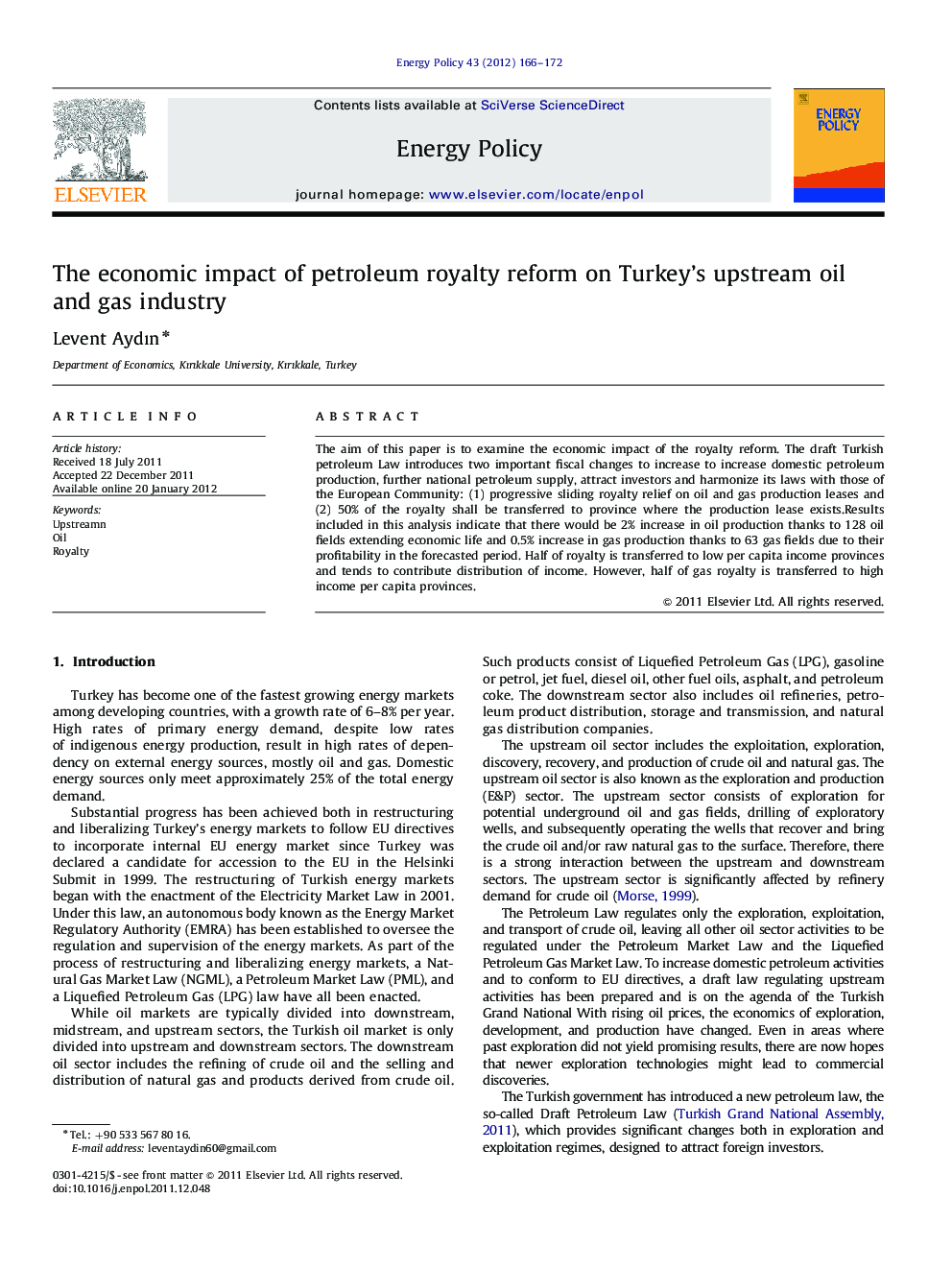| Article ID | Journal | Published Year | Pages | File Type |
|---|---|---|---|---|
| 994848 | Energy Policy | 2012 | 7 Pages |
The aim of this paper is to examine the economic impact of the royalty reform. The draft Turkish petroleum Law introduces two important fiscal changes to increase to increase domestic petroleum production, further national petroleum supply, attract investors and harmonize its laws with those of the European Community: (1) progressive sliding royalty relief on oil and gas production leases and (2) 50% of the royalty shall be transferred to province where the production lease exists.Results included in this analysis indicate that there would be 2% increase in oil production thanks to 128 oil fields extending economic life and 0.5% increase in gas production thanks to 63 gas fields due to their profitability in the forecasted period. Half of royalty is transferred to low per capita income provinces and tends to contribute distribution of income. However, half of gas royalty is transferred to high income per capita provinces.
► Turkish Draft Petroleum Law provides significant changes in the royalty regime. ► Royalties are discounted in accordance with production rates, API, water depth, etc. ► Decreasing royalties increase the profitability of oil fields by extending their production lives by approximately one year. ► Royalties transferred to poorer provinces tend to contribute to more equal distribution of income.
